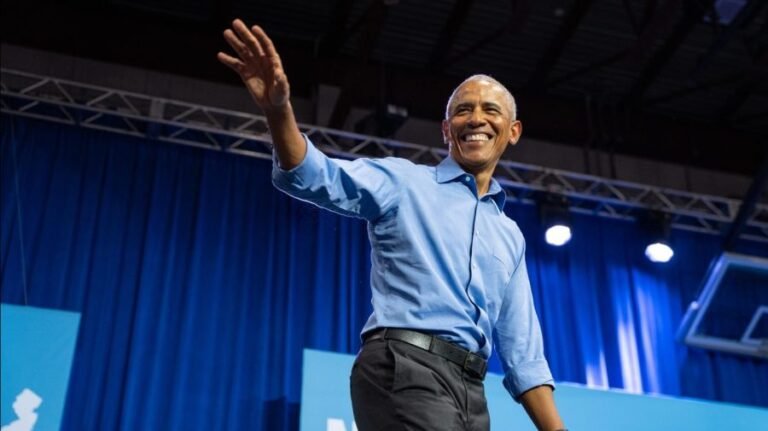
Speaker Mike Johnson (R-La.) in a press conference on Friday talked about the downsides of using the “nuclear option” to bypass the Senate’s 60-vote threshold to re-open the government without directly disagreeing with President Trump’s call for the chamber to get rid of the filibuster.
Johnson said he had not talked to President Trump since the president posted on Truth Social Thursday night calling for the nuclear option.
The speaker said it was a Senate issue, but talked about the downsides of changing the 60-vote threshold, which has necessitated bipartisan agreement to proceed to a final vote on most legislation.
“The filibuster has traditionally been viewed as a very important safeguard. If the shoe was on the other foot, I don’t think our team would like it,” Johnson said.
He said that Democrats, if they were in the majority with no filibuster, would make the District of Columbia and Puerto Rico states, ban firearms, and “do all sorts of things that would be very harmful for the country.”
Johnson said that Trump’s post was “another expression of the frustration, of the anger that has been felt, the anger by the President.”
Sen. John Curtis (R-Utah) said Friday morning that he’s a “firm no” on eliminating the Senate filibuster.
“The filibuster forces us to find common ground in the Senate. Power changes hands, but principles shouldn’t. I’m a firm no on eliminating it,” Curtis wrote on X.
Senate GOP leaders have ruled out a potential change to the filibuster to reopen the government. Majority Leader John Thune (R-S.D.) told reporters last week that getting rid of the filibuster to reopen government would be a “bad idea.”
Trump’s Thursday night post came on the heels of a trip to Asia, where he said he faced questions about how Democrats shut down the government, “and why did the powerful Republicans allow them to do it?”
“It is now time for the Republicans to play their ‘TRUMP CARD,’ and go for what is called the Nuclear Option — Get rid of the Filibuster, and get rid of it, NOW!” Trump posted on Truth Social.
Senate Republicans control 53 seats and could change the chamber’s rules by voting to set a new precedent that the filibuster does not apply to government-funding legislation.
Doing so would radically change the Senate by opening the door to passing legislation with a simple majority instead of 60, which would allow any party that wins control of the White House and both chambers of Congress to rewrite the nation’s laws in a relatively short period of time.


